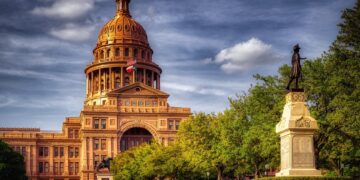>> There are great celebrations–illuminations, they called them. Fireworks, you know, ringing of bells, and so on. [glasses clink] >> Herrmann: But the joy in Philadelphia is anything but unanimous. Loyalists face a different kind of illumination. >> “Thee would not have imagined this house to be illuminated last night, but it was.
A mob surrounded it, broke the shutters and the glass of the windows, and were coming in. It was the most alarming scene I ever remember.” –Anna Rawle, Loyalist’s daughter. >> Herrmann: A month later, as fast as 18th-century news can travel, a midnight message is delivered to Benjamin Franklin with the news of Yorktown.
Franklin has been in France for five years to secure and hold on to French support. At long last, victory and peace may be at hand. London, six days later. Ironically, the British are the last to know. Prime minister Lord Frederick North gets the dreadful news by way of a French source.
“My God,” he cries, “it’s all over.” The news stuns England. The last anyone had heard, Cornwallis, one of Britain’s most able generals, had marched his army from Charleston to Virginia uncontested. There’s been no warning that such a profound defeat was even possible. >> The capture of Cornwallis comes as a nasty shock.
Britain’s not supposed to lose. It’s not supposed to lose to its own people, its own colonists. >> Herrmann: King George III has no intention of surrendering any part of his empire. He prepares a speech to steel the spine of parliament. >> “The late misfortune calls loudly for your firm concurrence and assistance.
I have no doubt but that by the support of my parliament, by the valor of my fleets and armies, and by a united exertion of my people, I shall be enabled to restore the blessing of a safe and honorable peace to all my dominions.” –King George III. >> Herrmann: In New York,
Britain’s man in charge of the American war is still General Henry Clinton. His failure to reinforce Cornwallis at Yorktown has made his troubled command unbearable. >> “I am fairly worn out. For God’s sake, let me return to my little family while I have something of life left.” –General Henry Clinton.
>> Henry Clinton makes a willing and ready scapegoat for this debacle. He has very few friends, legions of enemies. So back in England, immediately, there are renewed calls to bring this war, at least against the Americans, to a speedy conclusion. >> Herrmann: While London weighs its next move, it orders Clinton to maintain
All positions on the Atlantic seaboard. The British still have 12,000 troops in New York; 5,000 in Charleston, South Carolina; and over 1,000 in Savannah, Georgia. >> Britain still has substantial forces in North America, so no one is under any illusion that the war is over. [dramatic music] ♪ ♪
>> Herrmann: Up in New Windsor, New York, Continental commander George Washington has brought his 10,000-man army 60 miles up the Hudson River from New York to contain Clinton and his army. Washington’s troops may be savoring their victory at Yorktown, but the general himself is not yet ready to celebrate.
>> Because there is this exuberant feeling of victory that the Americans have won this great victory, a lot of the American soldiers at this point are inclined to hang ’em up and head back home and return to the business of peace. But the war is not yet over, and Washington recognizes this.
>> Yorktown didn’t end it. The British and the Loyalists in the Carolinas and in Georgia wouldn’t lay their arms down. >> Herrmann: Once again, it falls to Rhode Island general Nathanael Greene, Washington’s second-in-command, to continue his guerrilla war in the South. With only 1,000 men, Greene cannot hope to capture Charleston or Savannah,
But he relentlessly attacks British outposts in the Carolina and Georgia backwoods, forcing British soldiers back to the cities. ♪ ♪ Greene and his men never let up on the enemy in some of the bitterest fighting of the entire war. >> The fighting in the backcountry is continuing. There’s fighting on the
Frontier and then skirmishing in other places. There are more American deaths at the end of the war than at the beginning. The war is not necessarily over. >> Fire! >> Herrmann: The war in North America may not be over, but it has grown increasingly unpopular with England’s people and politicians.
>> The feeling among almost everyone is, “Cornwallis has been captured. This war has been expensive. It’s been ruinous in terms of loss of men. It’s drawn us into a fight where we have no friends and no allies in Europe or anywhere else.” >> Herrmann: Parliament’s war opponents are determined to quit North America.
They introduce a motion that the war in America be brought to a close. Initially, the motion is defeated by one vote, but in a revote three days later, it carries by 19, effectively ousting Lord North and his pro-war regime. The king is furious. Now, with the opposition
In power, he must agree to end the war despite his firm belief that an independent America will weaken, perhaps destroy, his empire. He fumes, even contemplates resigning as parliament sets about the complex business of obtaining a workable peace. By spring, the major conflict moves from the battlefields in America to the peace table
In France. Will Britain recognize American independence? What will the French demand for their contribution to the war? The future of America now rests on the shoulders of a negotiating team headed by the wise and cunning Benjamin Franklin. >> Herrmann: London, spring 1782. The six months of limbo after the American victory at
Yorktown is starting to break. Parliament has voted to end the war in America and forced out its prime minister, Lord North. In New York, a worn-out General Henry Clinton gets his wish and is relieved of his command. He has been fighting this war nearly from the beginning, from Bunker Hill in 1775
To Yorktown. For the last four years, Clinton has served as commander in chief. His greatest moment was capturing Charleston in 1780, but he exits America forever tarnished by the catastrophic failure at Yorktown. Clinton’s replacement, Sir Guy Carleton, the former governor-general of Canada, is charged with ending hostilities and withdrawing British troops.
George Washington, ever wary, keeps his army alert and ready for any British action. >> “From the former infatuation, duplicity, and perverse system of British policy, I am induced to doubt everything, to suspect everything.” –General George Washington. >> Herrmann: In Paris, peace negotiations begin somewhat tentatively in April. The Continental Congress
Has instructed the venerable Benjamin Franklin to sort through the many political agendas of the French, British, Spanish, and Dutch, whose recognition America will need to secure its independence. >> Franklin is the one sitting in Paris when the peace feelers are first put forward. So it’s his job to begin to
Separate the valid ones from the sort of less serious ones, to figure out which emissary is really bearing negotiating power, which is not as easy as it sounds. He holds this whole mess of peace feelers in place until he’s joined in Paris by John Jay and ultimately by John Adams.
>> Herrmann: John Adams is currently in the Netherlands seeking Dutch recognition of the United States and is soon to join Franklin at the Paris peace table. 37-year-old John Jay, a lawyer from New York and a former president of Continental Congress, is the youngest member of the American peace commission and plans
To arrive in Paris by June. For now, Franklin is on his own, just the way he likes it. >> What Britain wanted out of negotiations, more than anything else, was to separate the United States from France, because a persistent French-U.S. alliance would be a horrific prospect. >> Herrmann: Which is exactly
What France is hoping for. France has a great stake in the outcome. Franklin’s ally, French foreign minister Comte de Vergennes, persuaded his king, Louis XVI, to declare war on Britain, his perennial enemy. Since joining the war in 1778, France has thrown its army and navy into the fight and has
Lent the Americans $31 million. Vergennes is anxious for a satisfying payoff to his investment: American independence that will decimate England’s wealth, trade, and power. The Continental Congress has ordered Franklin to operate under the guidance and instructions of the French court. Over the next several months in Paris and Versailles,
The old chess master takes care with every move. >> Franklin knew that the cardinal rule of diplomacy was never to speak unless you absolutely had to. The patience of an old man, coupled with the fact that he’s naturally taciturn, makes him an enormously shrewd diplomat. >> Herrmann: Innumerable issues
Need to be ironed out with the British. The big one, of course, is independence. But there are other crucial items for both sides: terms of trade, fishing rights off the coast of Canada and on the Mississippi River, payment of pre-war debts, who owns what North American territory outside the previous colonial borders.
But no issue is more sensitive than the fate of the Americans who sided with the British, the Loyalists. >> There was a great sense of obligation to the American Loyalists. And there was a sense that, having expended so much effort and drawn the Loyalists into public professions of allegiance, Britain couldn’t
Simply abandon their flesh and blood this way. >> They have to be evacuated, because they fought on the wrong side. They see no life left for them. Who knows? Their land is going to be confiscated, probably. They may well be killed for fighting on the wrong side. >> Herrmann: With hostilities
Brought to a halt by the peace talks, the exodus begins for those no longer welcome. Sir Guy Carleton, Britain’s commander in chief, orders the evacuation of Savannah. As 1,000 British troops sail for New York to join the main army, 2,500 white Loyalists and 5,000 black slaves who joined the British set sail for
British-controlled territory in Florida and the West Indies. A month later in Charleston, South Carolina, the British post a general notice promising transport out for those who cast their lot with the Crown. By the end of the year, Charleston will see 126 ships carry nearly 12,000 people– white and black–to Florida,
The West Indies, New York, and England. Whatever their uncertain future, they are almost certain to fare better than the Loyalists who stay behind. John Adams finally arrives in Paris, a commercial treaty with the Dutch in hand. The peace talks begin in earnest. Franklin has prepared the ground for the younger, more
Aggressive Adams and John Jay to take over the reins. With their wildly different personalities, these three make a brilliant though less than harmonious team. Adams mistrusts Franklin’s reserve, which he interprets as devious, and Adams’ intensity rubs everyone the wrong way. Jay insists that American independence be a non-negotiable pre-condition to any serious talks.
>> I think the United States were fortunate in having negotiators who had spent a fair amount of time in Europe, who were the intellectual peers of the men that they would be dealing with and were unusually sly and wily people. >> Herrmann: Jay and Adams trust no one to look
After United States interests, including their French allies. Defying Congress’ orders, they cut the French out of the process and deal only with the British. >> In the end, the three men work quite brilliantly together and pull off terms that are so extravagantly great for America that, essentially, the French will be reeling.
“How did these babes in the woods manage to pull this off?” >> Herrmann: The French, to put it mildly, are outraged. Without them, the revolution would have surely failed, yet these upstarts have dared to exclude them. >> We have essentially violated our contract with the French. And the French feel understandably cheated, traduced.
“Those treacherous Americans. We knew we couldn’t trust them in the first place.” >> Herrmann: It becomes Franklin’s job to not only repair the insult but to extract yet another loan from France’s depleted treasury. >> He goes off to see the French foreign minister, the Comte de Vergennes, and says to him two things.
First of all, “We’re babes in the woods. We made a mistake. We didn’t know how to do this properly,” which of course was completely the opposite of the truth. And secondly, “The British really would like to divide us. They love the idea that they’ve divided us. Let’s not give them that satisfaction.”
He does that masterfully as only Franklin could have. He’s extremely subtle. And Vergennes is dumbstruck by this speech but really can’t do anything about it and essentially jumps on board. >> Herrmann: On November 30th, the British sign a tentative agreement that, for the first time, acknowledges the former colonies
As the United States of America. Almost all of its provisions prove favorable to the Americans. Britain will recognize the 13 free and sovereign states. The States get guaranteed fishing rights off of Newfoundland. The western boundary of the United States will be defined by the Mississippi River, with navigation and fishing rights
Shared by America and Britain but not France or Spain. The provisional treaty is sent back to America for approval. >> Parliament hoped to make a generous peace that would create goodwill in the United States. And the United States emerged from the peace conference with far more than they could have
Had right to expect. >> Herrmann: But even among the winners of this generous peace, there are losers. Many Americans will soon find out they have been left out. As the war with Britain draws to a close, discontent within the new nation threatens its very survival. >> Herrmann: Winter 1783.
A year and a half after the climactic battle of Yorktown, General George Washington is still waiting for an end to the war. A provisional treaty has been signed, hostilities have all but ceased, but an official peace is not yet declared. With too much time on their hands and nothing to do
But drill, discontent festers. At the New Windsor, New York, encampment, mutiny is once again in the air. >> The officers of the Continental Army were extremely frustrated. Peace negotiations were dragging on. Congress had promised them officers’ pensions years ago. They had still not approved that. There was months of back pay
They were owed that had not been collected. They were enraged. >> Herrmann: Though they’re on the verge of going home, furious officers threaten not to disarm until Congress honors its financial obligations to its fighting men. >> It was not outside the realm of feasibility that the army might have, in fact, marched
On Philadelphia and tried to depose the government. >> Herrmann: Hundreds of officers assemble at a meeting hall near the camp. A coup against Congress is becoming a serious threat. >> They pile in, and they jam the hall. It’s an airing of grievances, and it’s pretty obvious that they’re going to decide
To march on Congress and force the end. Now Washington has a dilemma. He’s the commander of the army. He has to defend Congress against his own men. How can he do that? They’re mad at him. He hasn’t helped them in this. He said he would, and nothing has happened.
He told them that things take time; the wheels of Congress move slowly. They didn’t want to hear that, so they’re angry at him. All of a sudden, as the meeting starts, the commander in chief arrives alone. He walks to the front of the hall, and he makes a speech.
>> “As I have never left your side one moment, as I have been the constant companion and witness of your distresses, it can scarcely be supposed at this late stage of war that I am indifferent to its interests. This dreadful alternative of either deserting our country in the extremest hour of her
Distress or turning our arms against it has something shocking to it that humanity revolts at the idea. My God!” >> He says wonderful things, but his speech goes over like lead. Then he says he’s going to read a letter from a member of Congress to add to what he has to say.
He picks up the letter. He can’t read the letter. He takes out his glasses, and he tells the men that “I’ve got to read this letter with my glasses, because like you, in addition to growing gray, I have gone blind in the service to my country.” And this ad-lib line
That he didn’t intend to say hits these men like a punch to the stomach. And then all of a sudden, these tough, hard soldiers, they begin to weep uncontrollably. This admiration for the commander. “He never took a vacation. He’s been at the front lines, being shot at like us. He’s held us together
For eight years. Everywhere we’ve been, he’s been with us.” There’s this unbelievable connection between the officers and him. That was the end of the rebellion. There was no rebellion. >> I think that moment in 1783 is one of the great moments in American history and Washington at his finest.
It was a moment of real danger. Americans had always suspected a standing army, suspected what it might do, suspected that it might actually take power, and this is the moment where it might actually have occurred. >> Herrmann: A month later, in April, Congress receives England’s official declaration to end all hostilities.
One after another, the European countries have recognized the United States of America as a sovereign nation. By June, most of the Continental Army disbands, and Washington awaits the peaceful evacuation of Britain’s last stronghold, New York City. New York has become the last safe place for Loyalists. As the British military
Prepares to leave, the city is overrun by thousands of black and white refugees who desperately need to get out. Some 100,000 blacks who had thrown in their lot with the British had been offered protection. Now the question is, will the British make good on their promise? >> Washington was demanding
That the British restore slaves to their masters, and so there was a lot of concern. But by and large, the British didn’t do that. By and large, the former slaves left America with the British. >> The fate of the slaves who escaped is mixed. We know that 3,000 went
From New York up to Canada. A few hundred went to England. Lots of them were sent to the Bahamas and other places as slaves. And some were returned forcibly. >> Herrmann: By the fall, the treaty of Paris is signed. In November, the last of the British soldiers leave New York.
After seven long years, General George Washington, with what remains of his army, returns triumphant to New York City, the scene of his most humiliating defeat. One eyewitness observes: >> “The troops that marched in were ill clad and weather-beaten and made a forlorn appearance. But then they were our troops,
And as I looked at them and thought upon all they had done for us, my heart and my eyes were full, and I admired and gloried in them the more.” >> Herrmann: Americans can finally celebrate. After a war that’s inflicted 25,000 military deaths, 1% of the U.S. population, the people are ready
To leave war behind and look to the future. Everyone realizes that something momentous has happened. But the joy will be short-lived. >> The war is at an end, but the American Revolution is far from over. We’ve only seen the first act. The political and social sorting out was far from over.
>> Herrmann: The revolution’s second act will be every bit as perilous for the new nation as the first. The war’s aftermath is about to bring the fragile alliance of states dangerously close to disintegration. >> Herrmann: The Continental Congress, December 23, 1783. >> “Having now finished the work assigned me, I retire from
The great theater of action. And bidding an affectionate farewell to this august body under whose orders I have so long acted, I here offer my commission and take my leave of all the employment of public life.” –George Washington. >> Herrmann: At this moment, if he wanted to, George Washington could rule
The new United States. But he walks away. He submits $100,000 for expenses, asks no payment for his services, and he goes home to Mount Vernon. >> George Washington’s decision startled everyone. What happens in revolutions is that the head of the revolutionary army that wins takes over. You become a king or a dictator
For life. You take over. You don’t leave and go home. He never really thought about it. It was time to go, and he went. >> Herrmann: The war is finally over. The British and their Loyalists–both white and black–are gone. The American army has, for the most part, disbanded. But many in America
Will soon realize that the long-awaited peace is anything but. >> For American Indians, the revolution was a disaster. They were on the losing side, and the British walked away from the Indian allies. The same American weapons, the same American officers, the same American enlisted men, in many cases, turned their guns
West against the Native Americans, and a long war of national expansion into the West occurred. >> Herrmann: But it’s not just the Indians who suffer. The end of the war brings political and economic chaos. Fear and anger spread through all 13 states at every level. >> People are tired out.
The economy was in shambles. There was no currency at the end of the war; it had lost all its value. There’s serious economic problems. >> The new United States is really a very fragile country. A lot of their leaders are very worried. Exactly how they’re going to keep this group of states
Together is always a question. >> Herrmann: The only thing binding the states into a union are the Articles of Confederation, a very weak compact that assigns joint policy-making power to the Continental Congress. The Congress cannot, however, regulate trade, levy taxes, or issue currency. The Articles were drafted at the same time as the
Declaration of Independence in 1776, but it took five years for the fiercely independent states to agree to even this feeble central authority. >> The government under the Articles of Confederation failed badly. There was no central chief executive. Congress had no power to tax. There were rebellions against authority. >> Herrmann: The revolution
That started over British taxes has ended up with new conflicts over state taxes. Returning veterans are losing their farms to bankers and tax collectors. This is not what they fought for, and many are ready to take action. >> Take the farmer in Massachusetts. At the end of the war, in a broken economy,
He can’t pay his taxes, and the legislature says, “We can’t retire the revolutionary debt, which is huge, without imposing taxes.” So we have a very difficult situation here. It leads to Shays’ Rebellion in 1786. >> Herrmann: Daniel Shays is a fed-up veteran and farmer from western Massachusetts. In August 1786, he leads 4,000
Men on an armed insurrection against county and state courts to halt farm foreclosures. >> The same men who fought in the Massachusetts line in the revolution are now fighting against their own government. They’re closing courthouses. >> Herrmann: In September, Shays’ rebels force closure of Massachusetts’ highest court, the supreme court in Springfield.
The Massachusetts governor sends 4,400 state militiamen to put down the rebellion. >> Okay, stand fast, lads. Stand fast. >> Herrmann: The soldiers easily rout Shays and his men with cannon fire and grapeshot. Four of Shays’ men die, but the rebellion has made its point. The states are in chaos,
And they had better unite behind some kind of central government…fast. >> As a whole, this unit doesn’t work yet. And if it doesn’t find a way to work, what’s going to be the mechanism that’s going to ensure that that independence is preserved and secured? >> “We the people of the United
States, in order to form a more perfect union, establish justice, insure domestic tranquility…” >> Herrmann: In the coming months, the quest for a more perfect union will begin. >> “Do ordain and establish this Constitution of the United States.” >> Herrmann: These are the grand words that will soon introduce a brand-new
Constitution to the people of a floundering nation. But finding grand words will be the easy part. The hard part will be coming up with a compact to satisfy all the competing interests before the whole noble experiment falls apart. >> Herrmann: May 1787, Philadelphia. It’s now or never for the anything-but-united states of America.
If they don’t come up with a constitution to establish a functioning central government, the new nation will most certainly implode. The states send 55 delegates to a constitutional convention to repair the woefully inadequate Articles of Confederation. >> There are all kinds of questions about what’s going to be the direction
For this new nation. And you can’t have 13 different answers; you need to have one answer. >> Herrmann: These men are charged with nothing less than devising a whole new system of government. The one thing they can agree on is to keep the proceedings secret to ensure candor and
Allow a full range of argument. Among the group are both new and old faces, including the most revered man in America. >> Washington is the presiding chairman, the president of the Constitutional Convention. His presence is very important for the legitimacy of this new constitution. >> Herrmann: The last thing
George Washington wanted to do after eight grueling years of war was leave his beloved Mount Vernon home. At 55, he is tempted to rest on his laurels, but he is keenly aware that all his efforts could be undone if government doesn’t change. >> I think Washington is nervous about what’s going
To happen to the country if they don’t have a new form of government. He has a national vision of America. That’s why he’s important to be in that room. >> Herrmann: There are other visions in the room. Alexander Hamilton from New York is a brilliant 32-year-old war veteran and attorney. Benjamin Franklin,
The great negotiator, now old, frail, but ever wise and reliable, joins the Pennsylvania delegation. Among the missing are two of the revolution’s most forceful voices, John Adams and Thomas Jefferson, who are serving as foreign ministers in England and France. >> Adams and Jefferson just, I think, are frantic with the
Fact that a new government’s being written about and they’re not there. >> Herrmann: In their place, the man with the plan, the Virginia Plan, is James Madison, a 36-year-old career politician from Virginia. Madison knew this moment would come and has spent years formulating a new governing structure. His Virginia Plan, with a foundation
As old as the Greeks’ and as recent as the states’ own constitutions, proposes three branches of government– an executive, a two-house legislature, and a judiciary– with each branch serving as a check on the power of the others. Throughout the hot summer of 1787, arguments rage about the balance of power between large states
And small states, between South and North, between civilian and military authority. >> There’s a real concern about democracy run amok. There’s a real concern about monarchism returning. There’s a concern about the states having too much power. There’s a concern about this new national government having too much power.
And so it’s really a balancing act to make sure that there is a structure that does not let anyone monopolize power. >> A lot of folks in the country fear a new democratic federal government just as they feared the power of the Crown. >> Another big issue: how are
You going to represent people? You can have two houses, but do you count the small states the same as the big states or the big states overwhelm the small states? How are you going to get around that? >> Herrmann: The months wear on, and tempers wear thin. Some delegates go home, and
Some states threaten to bolt. “I fear,” worries Alexander Hamilton, “that we shall let slip the golden opportunity of rescuing the American empire from disunion, anarchy, and misery.” But under Washington’s patient hand, the delegates stay the course, and the long days and nights of argument and compromise produce a workable draft.
It is only four pages, made up of a preamble and seven articles that outline the structure of a new national government. >> “Article 1, Section 1. All legislative powers shall be vested in a Congress of the United States, which shall consist of a Senate and a House of Representatives.”
>> You can have two senators from each state, and they’ll be sort of where the brains are. And representatives in the house of Congress will be apportioned by population, and that’s where the virtue will lie, this sort of sense of what the people want. So if you have them both, you
Get the wisdom of the Senate and the virtue of the people. >> “Article 2, Section 1. The executive power shall be vested in a president of the United States of America. He shall hold his office during a term of four years and together with the vice president… >> Herrmann: Washington exerts
His greatest influence in fashioning the unprecedented role of an elected president. After years of wrangling with Continental Congress during the war, he knows better than anyone the need for a decisive executive. The president will execute the laws of Congress and, as a civilian, will act as the commander in chief
Of the national army and navy. >> Military tyranny is something they’re determined to avoid. So the respect for civilian authority is something that plays a large role in the new constitution. >> Herrmann: These first two articles and the third, establishing a supreme court, form the heart of an unprecedented democracy.
But the document also contains a blatant anomaly: slavery. >> Slavery was in clear counterpoint to the ideals of the revolution, but these guys believed very strongly, particularly in the plantation economies, that slavery was the basis of their livelihood. Many of them felt that slavery was wrong. Those who were dependent
Upon it could not figure out a way to escape it. >> Herrmann: With the South threatening to secede, the delegates agree to continue the importation of slaves for another 20 years. Another clause prohibits any state from harboring or freeing escaped slaves from their masters. For the purpose of counting population, slaves are defined
As three-fifths of a person. Otherwise, they are property, not people. >> Even though slavery was such a hot topic of discussion at the convention, the word “slave” or “slavery” does not appear in that document at all. You will find slavery talked about, just not named. You know, they will use euphemisms
Like “those not free,” “other persons,” and so on. >> Slavery is so interwoven in the economy of the South that they just can’t bring themselves to right this wrong. They basically postpone the problem, to be reckoned with on another day. That day became the Civil War. It was a pretty bad day.
>> Herrmann: On September 17, 1787, 39 exhausted delegates sign the finished document. The constitution they have fashioned to form a “more perfect union” is an imperfect compromise of visions, and few of the signers, if any, are truly satisfied. But with characteristic optimism, Benjamin Franklin sets aside his own reservations and fully endorses it.
>> “I think it will astonish our enemies, who are waiting to hear that our states are on the point of separation. Thus I consent to this constitution because I expect no better and because I am not sure that it is not the best.” >> Herrmann: Two days later, the proposed United States
Constitution goes into print. Born in secrecy, it takes the public by complete surprise. Few expected such a sweeping new form of government. But the people will study it and argue it, and soon they, too, will have their say. >> For all the talk about popular sovereignty that had gone on during the war–
And that’s what we were fighting for– what we come to in the end is a small group of people at the top determining what they think the fate of the nation should be and then having to sell it, as if a product, to the rest. >> Herrmann: It will take
Nearly a year for the required 2/3 of the states to ratify this constitution. On June 21, 1788, it becomes the law of the land. Washington returns once again to Mount Vernon after the signing of the constitution, hoping to live out his days there. But he knows, like virtually every other American,
That when it comes time to elect the first president of the United States, it is he who will be called. >> He is the only person that could be the president. Nobody else could hold the United States together. Everybody trusted and admired him. Only he could do this. He feels that history is
Drawing him to this, that it’s a destiny of some kind. >> Herrmann: In a time like no other, when history has made men and men have made history, no one more than George Washington has guided the destiny of America. Twice he has taken the stage, and twice he has left it.
Now, for the third time, his people and the lure of posterity call him to take the helm of this new nation and lead it into its unprecedented and uncertain future as the United States of America.

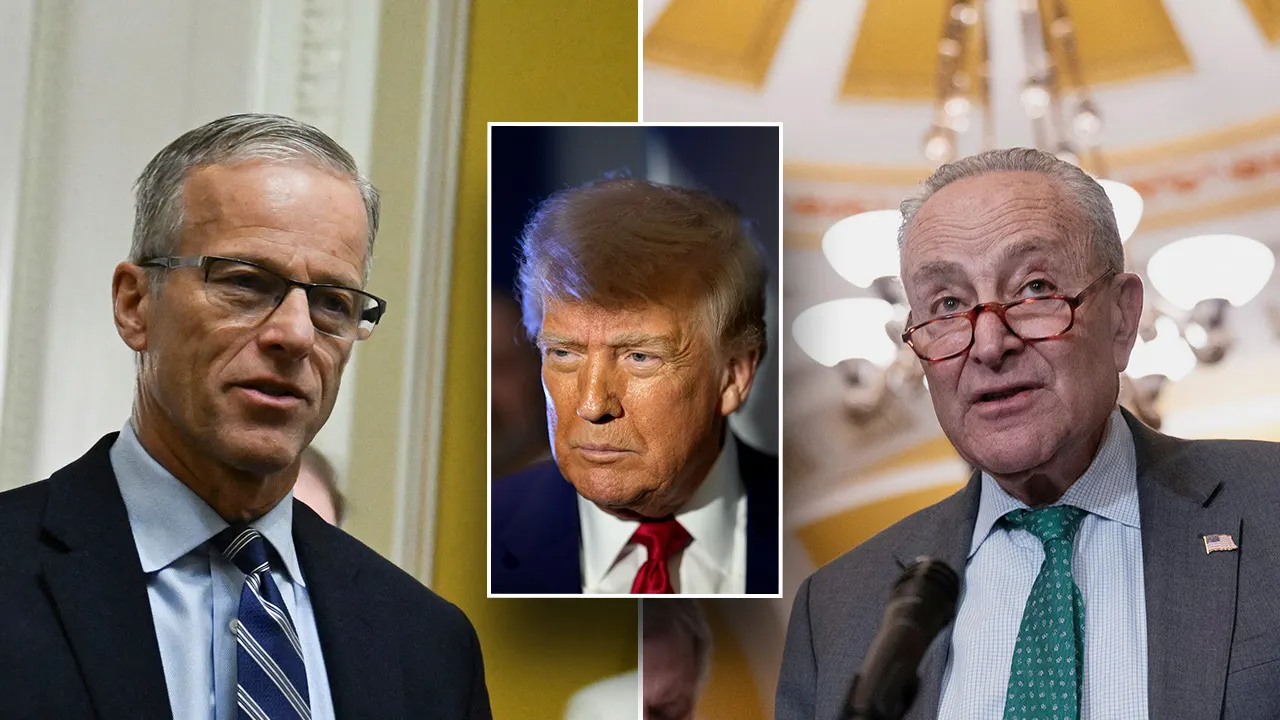
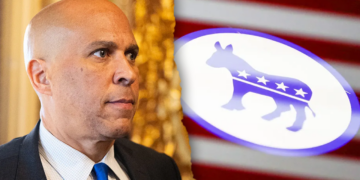
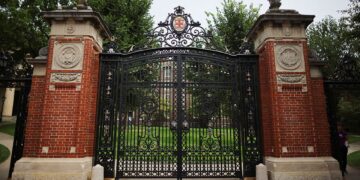

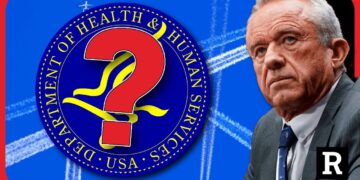



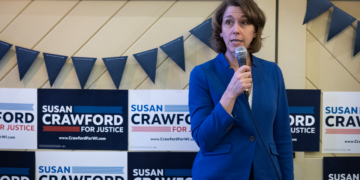























 Reaction & Commentary
Reaction & Commentary





